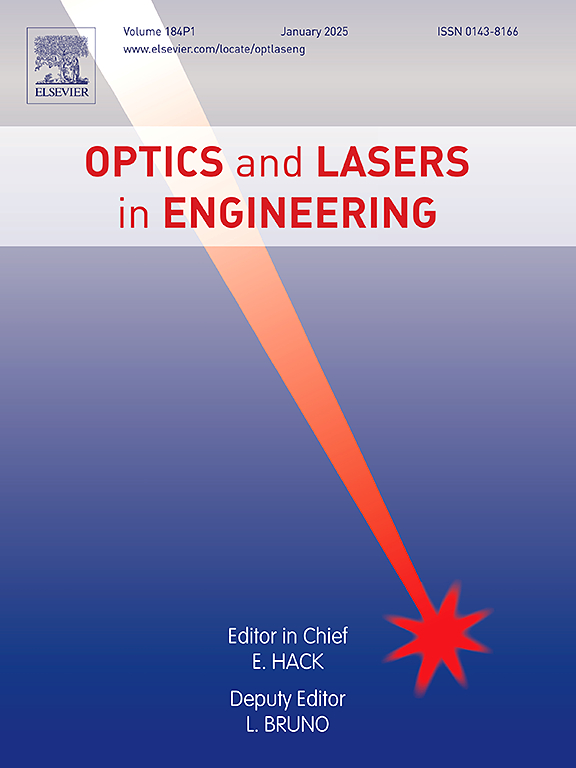Dynamic characterization measurement of the circular foil heat flux sensor based on laser method
IF 3.5
2区 工程技术
Q2 OPTICS
引用次数: 0
Abstract
In order to make the circular foil heat flux sensor meet the growing demand for dynamic heat flux monitoring in extreme environments such as hypersonic wind tunnels, a dynamic calibration platform with a high-power semiconductor laser as heat flux source is built. Combining Finite Element Analysis (FEA) and experiments to carry out relevant studies. Our findings indicate a negative correlation between the time constant and laser power/pulse width, whereas the rise time is positively correlated with the laser pulse width. And they are all positively correlated with the coating thickness. Importantly, FEA revealed the independence of laser parameters from the time constant. Additionally, when the laser pulse width is approximately one order of magnitude less than the time constant of the sensor, it can be deemed an ideal pulse excitation. In the experiment, the maximum heat flow density was applied up to 3.49 MW/m2, the minimum ideal pulse laser width can reach 1ms, the minimum time constant was measured to be 63 ms, and the minimum rise time was 12 ms. This research serves as a valuable reference for dynamically calibrating sensors using the laser method.
基于激光法的圆箔式热通量传感器动态特性测量
为了使环形箔片热通量传感器满足高超音速风洞等极端环境下日益增长的动态热通量监测需求,建立了一个以大功率半导体激光器为热通量源的动态校准平台。结合有限元分析(FEA)和实验开展相关研究。研究结果表明,时间常数与激光功率/脉冲宽度呈负相关,而上升时间与激光脉冲宽度呈正相关。而且它们都与涂层厚度呈正相关。重要的是,有限元分析表明激光参数与时间常数无关。此外,当激光脉冲宽度小于传感器时间常数约一个数量级时,可以认为是理想的脉冲激励。在实验中,最大热流密度为 3.49 MW/m2,最小理想脉冲激光宽度可达 1ms,测得最小时间常数为 63ms,最小上升时间为 12ms。这项研究为使用激光方法动态校准传感器提供了宝贵的参考。
本文章由计算机程序翻译,如有差异,请以英文原文为准。
求助全文
约1分钟内获得全文
求助全文
来源期刊

Optics and Lasers in Engineering
工程技术-光学
CiteScore
8.90
自引率
8.70%
发文量
384
审稿时长
42 days
期刊介绍:
Optics and Lasers in Engineering aims at providing an international forum for the interchange of information on the development of optical techniques and laser technology in engineering. Emphasis is placed on contributions targeted at the practical use of methods and devices, the development and enhancement of solutions and new theoretical concepts for experimental methods.
Optics and Lasers in Engineering reflects the main areas in which optical methods are being used and developed for an engineering environment. Manuscripts should offer clear evidence of novelty and significance. Papers focusing on parameter optimization or computational issues are not suitable. Similarly, papers focussed on an application rather than the optical method fall outside the journal''s scope. The scope of the journal is defined to include the following:
-Optical Metrology-
Optical Methods for 3D visualization and virtual engineering-
Optical Techniques for Microsystems-
Imaging, Microscopy and Adaptive Optics-
Computational Imaging-
Laser methods in manufacturing-
Integrated optical and photonic sensors-
Optics and Photonics in Life Science-
Hyperspectral and spectroscopic methods-
Infrared and Terahertz techniques
 求助内容:
求助内容: 应助结果提醒方式:
应助结果提醒方式:


